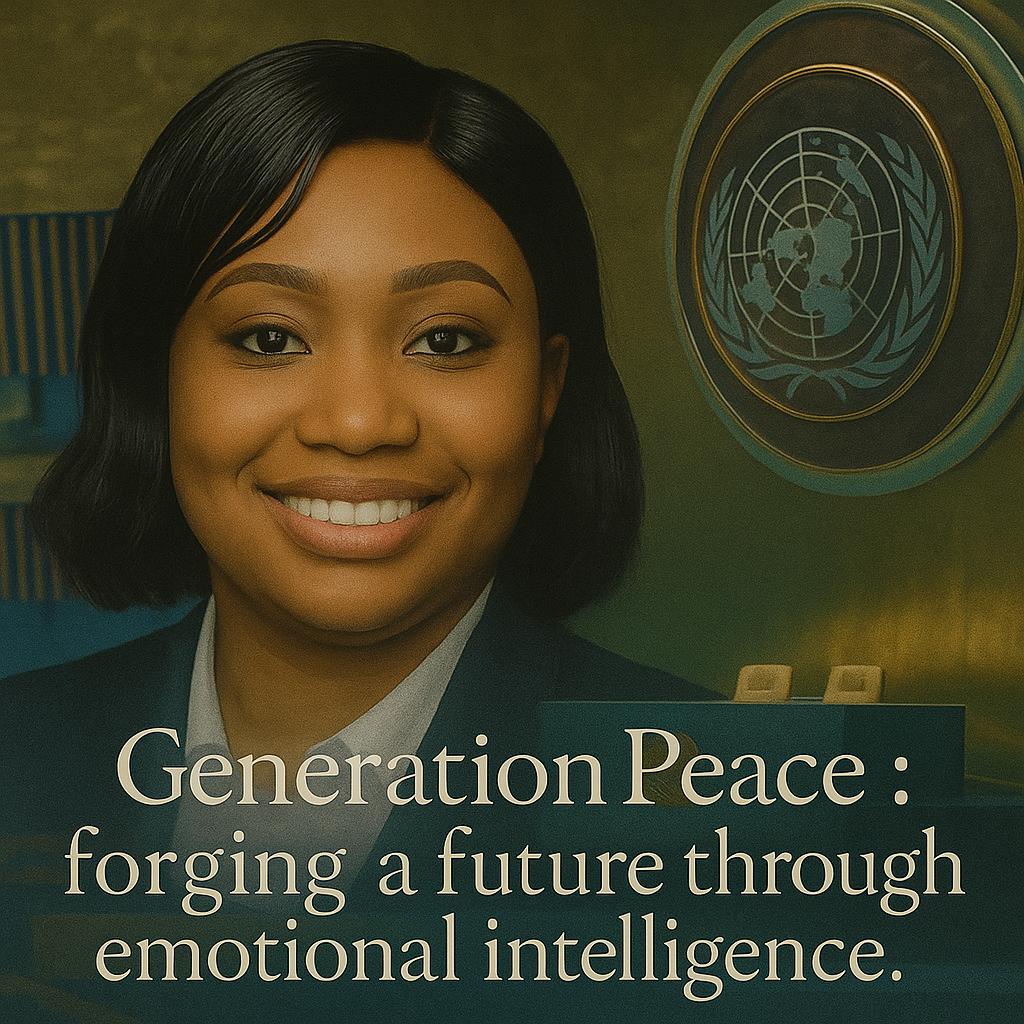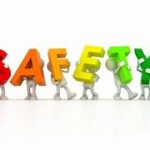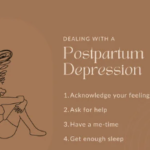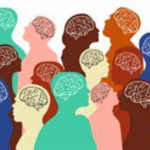A generation is coming of age in a state of perpetual crisis. They navigate a daily barrage of political division, ecological anxiety, systemic inequity, and digital discord.
This is the first generation to grow up with the ambient hum of overlapping emergencies, from climate change to democratic fragility, as the soundtrack to their formative years. To ask them to build a better future without the right tools is not just unfair; it is a profound strategic failure.
The most critical tools we can give them are not external. They are the internal capacities for resilience, clarity, and empathy forged by emotional intelligence (E.Q.) and robust mental health.
This is the blueprint for empowering Generation Peace, a cohort defined not by the unprecedented challenges they inherit, but by their cultivated capacity to transcend them.
It’s a shift from a paradigm of mere survival to one of intentional, internally-driven transformation.
The Hurricane of Disadvantage
To empower this generation, we must first honestly diagnose their reality.
The obstacles they face are not separate, isolated storms but a single, perfect hurricane of disadvantage, where each destructive force intensifies the others. These help create a vortex of immense pressure.
- Political Barriers: Beyond simple cynicism, young people are experiencing a profound crisis of faith in institutions. They see the erosion of democratic norms in real-time. This is amplified by social media echo chambers that reward outrage and punish nuance. This environment breeds a sense of political homelessness, where their voices are drowned out by partisan warfare and corporate lobbying.
- Educational Barriers: The crisis in education extends far beyond funding. While districts with the most students of color still receive about $2,000 less per student annually in the U.S., the very structure of education is often misaligned with the needs of the 21st century. An over-reliance on standardized testing can stifle the exact skills, creativity, collaboration, and emotional literacy that are most needed. They are being prepared for a world that no longer exists, armed with facts but not the wisdom to apply them.
- Ethnic and Identity-Based Barriers: The rise of digital tribalism has weaponized identity. Young people navigate a landscape where online algorithms can lead them down paths of radicalization, and where prejudice is no longer confined to isolated incidents but is a constant, low-grade fever in their digital and physical lives. The psychological toll of code-switching, of enduring microaggressions, and of seeing one’s community vilified is immense.
- Poverty and Economic Precarity: Underpinning everything is the crushing weight of economic instability. For many young people, the dream of achieving more than their parents has been replaced by the fear of falling behind. This isn’t just about a lack of resources; it’s a cognitive burden. Research shows that the chronic stress of scarcity, the “bandwidth tax”, impairs executive function, making long-term planning, impulse control, and creative problem-solving significantly more difficult.
Emotional Intelligence: The Modern Arsenal
How does one stand against this hurricane? Not by bracing for impact, but by learning to navigate the winds.
Emotional intelligence is the modern arsenal for this task, a suite of skills that transforms victims of circumstance into architects of their future.
- Self-Awareness: This is more than just knowing you’re in a bad mood. It’s the ability to precisely identify your emotions and understand their origins. In practice, this means recognizing that the anger you feel from a political headline is being deliberately provoked, allowing you to resist manipulation. It’s understanding your own implicit biases so you can consciously work against them.
- Self-Regulation: This is the practical application of self-awareness. It’s the capacity to manage the anxiety of an uncertain job market without spiraling into despair. It’s the discipline to engage in a difficult online conversation without resorting to insults. For a generation facing constant provocation and stress, self-regulation is not about suppressing emotion, but about channeling that powerful energy into constructive, focused action rather than reactive, chaotic noise.
- Motivation: In the face of systemic barriers, motivation cannot be dependent on external validation. E.Q. fosters an intrinsic drive, a resilience that helps transform adversity into strength, a concept known as post-traumatic growth. It’s the stubborn optimism that fuels a climate activist despite grim scientific reports or a social entrepreneur who builds a community project in a neglected neighborhood.
- Empathy: This is perhaps the most crucial skill. It involves both cognitive empathy (the ability to understand another’s perspective) and affective empathy (the ability to share their feelings). Both are essential for dismantling polarization. Empathy allows a young person to look past a political label and understand the fears and hopes that motivate someone on the other side. It’s what happens in youth dialogue programs where individuals from conflicting communities share their stories and suddenly see a human being instead of an enemy.
- Social Skills: This is where internal strength becomes external change. These are not just manners; they are sophisticated tools of influence and collaboration. They include active listening, nonviolent communication, digital advocacy, and the ability to build and sustain coalitions. It’s the skill set that turns a passionate individual into a persuasive leader who can organize a movement, mediate a conflict, and articulate a compelling vision for a better future.
But Isn’t This Just a ‘Soft Skills’ Distraction?
A common critique that focuses on internal skills is a “soft” approach that distracts from the “hard” work of policy change and systemic reform. This presents a false choice. Systems are not abstract entities; they are composed of individuals. Systemic change requires a critical mass of individuals who possess the emotional fortitude to collaborate, to withstand setbacks, and to persevere through the long, arduous process of advocacy.
The Civil Rights Movement was not won by people who were emotionally fragile; it was led by individuals with profound self-regulation, empathy, and a resilient sense of motivation. By equipping youth with these internal tools, we are not distracting them from the fight; we are giving them the psychological armor and strategic wisdom needed to win it.
Mental Health: The Unshakeable Foundation
While E.Q. provides the tools, mental health is the non-negotiable foundation upon which everything is built. We cannot ask a young person to build a peaceful world if they are at war with themselves. The statistics are a clear alarm bell: the World Health Organization reports that one in seven 10-19-year-olds experiences a mental disorder, and the majority go unrecognized and untreated.
We must address the unique challenges of this era, from the collective trauma of global crises to the insidious effects of social media’s comparison culture. Mental health support must be seen as essential infrastructure.
It must be destigmatized, culturally competent, and accessible, woven into the fabric of our schools and communities, not hidden away in inaccessible clinics. Healing is not a luxury; it is a prerequisite for empowerment.
From Theory to Action: Our Mandate
This isn’t just a hopeful idea; it’s a strategic imperative. A generation’s potential hangs in the balance. Here is how we can act, not next year, but today:
- For Educators: Go beyond token wellness days. Implement school-wide, evidence-based Social and Emotional Learning curricula. Use restorative justice circles for conflict resolution instead of punitive measures. Champion project-based learning that requires students to collaborate and solve real-world problems, building their social and emotional skills in the process.
- For Policymakers: Champion a “Mental Health in All Policies” approach. Fund universal access to mental health screenings and care for every child. Massively increase the number of school counselors and psychologists. Support community-based youth centers that provide safe spaces for connection and emotional development.
- For Business and Tech Leaders: Create mentally healthy workplaces for your young employees, with clear boundaries and supportive management. For tech companies, the mandate is even greater: redesign your platforms. Shift algorithms from maximizing engagement-at-all-costs to prioritizing genuine connection and user well-being.
- For Every Reader: The work starts with us. Support a local youth-led organization with your time or money. Mentor a young person. Most importantly, model emotional intelligence in your own life, in your family, your community, and your online interactions. We must become the change we wish to see.
I will conclude by saying that generation peace is not a passive title to be bestowed; it is a capacity to be built. Let’s give them the tools to build it.




















